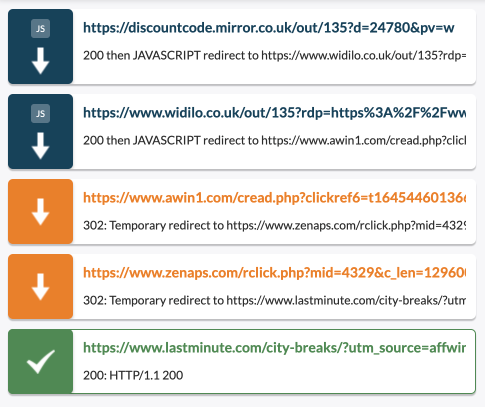We’ve all seen the storm clouds gathering and casting a cloud over the future of third party cookies. It’s been coming for some years – ever since the initial ITP 1.0 rollout in Safari in 2017 – and even before that for keen observers.
Affiliate marketing tracking has been in party denying the inevitable though more recently moving over to what some have dubbed the ‘cookieless future’. In reality, cookies will still be a major part of any online experience, with their use more controlled by the web user than the tech companies.
Leading global network Awin recently updated their knowledge base with an article on exactly that. The main thrust of the article was around the role of cookies in tracking. It covers the 1st party and 3rd party cookies quite simply, along with issues currently involving much investment in tech development across all networks.
What it doesn’t mention is that already well over 10% of affiliate tracking is compromised by still relying on third party cookies. With Safari representing 30% of browsers and increasing move to mobile purchases, this is only set to accelerate.

Cookies – 1st and 3rd
So what is the difference and what does that mean for affiliate marketers? Put simply, first party are set by the website a visitor is on; third party cookies are set by any other website during the visit or via a redirect to another website. In affiliate terms that means an advertiser or merchant.
Affiliate Networks are still using third party cookies in tracking, despite the amount of information available to show they will become useless. Variations are used across the wider digital industry – often as a fallback even where other tracking tech is in place. Affiliate tracking usually works by a series of redirects as we see in this Lastminute link via RedirectPath:

As the redirects show, there are multiple redirects – even one before landing on the network tracking domain. The cookie with the relevant awin IDs was in this case third party. It is not uncommon for networks to use third party cookies even when there is server or other tracking in place – often as a fallback.
Certainly it can help to cover up tracking failing for several reasons such as any link in Safari which routinely blocks third party completely. With a 30% market share of browsers, it has a major impact on any affiliate activity using third party cookie tracking. Apple and Google (and to a lesser extent Microsoft) decide what happens in any cookie event. The network just has to respond.
Tools
There are a few tools available each of which identify some of the issues. I’ve recently become involved with the Moonpull platform, which provides analysis of affiliate tracking across multiple affiliate and SaaS networks.

It looks at cookies through the user journey from an affiliate website through to an advertiser. It also examines the cookie consent mechanisms being delivered in that journey to identify issues which may affect tracking effectiveness. The website stresses that “networks have good technology, but the environment in which they operate is only getting more difficult as tracking options within Safari, Google, Facebook and other platforms become more complicated and restricted“.
The technology is in use by publishers, OPMs and networks such as global affiliate network, Awin. Their Thomas Bilz stated that “the initial signs are that Moonpull is a game-changer for us in the analysis of our cookies“
The Death of Third Party
However, as Forbes, fmtc and others have predicted, we are projected to say goodbye to third-party cookies. Google will be the last to move by the end of 2022. It’s been a while coming since Safari first introduced its initial ITP in 2017. Really it has been ignored for too long in the affiliate world – with notable exceptions.
First Party First
First party cookies are the safe choice for affiliate tracking. They contain the essential advertisers information to make website and a transaction work. The cookie can then include marketing tracking as part of that based on user acceptance.
It is highly likely that other networks will follow Webgains lead and rely solely on first party. They cover this in their 2020 article describing the journey and implementation in 2018:
“In 2018, new Webgains tracking was created to run 100% and solely on 1st party cookies. Since this was also required for Webgains’ GDPR compliance we worked exceptionally hard to move the majority of our advertisers on to this new codebase.”
Many of the SaaS tracking platforms are effectively direct linking with purely first party in place. Many others are using server to server tracking or other ‘naked’ linking.
The Future for Tracking and Cookies
Many have written proclaiming a ‘cookieless’ future. In reality the future is not as stark as the headlines are warning. Based on the current internet architecture, cookies perform a valuable role – as you’d discover if you remove all the cookies in your own browser!
In most cases, affiliate networks and SaaS providers already have a solution (as with Webgains above) or are at least working on one – pretty urgently. The legacy third party will disappear and affiliate marketing will be the stronger for it. We’re looking forward to the next level of oddness in the Apple/Google/Microsoft browser wars. Affiliate linking should remain as a powerful and valuable model for some time to come.

Chris Tradgett

2 thoughts on “The Death of Third Party Cookies”
Thanks.
Good luck!